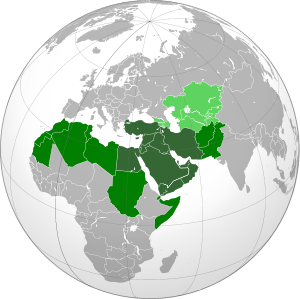Transforming Conflict In The Middle East Requires Out-Of-The-Box Thinking – OpEd
To think out-of-the-box is what we owe to the Palestinians and the Israelis more than ever, and the only real contribution we can make from outside to start transforming this conflict.
By Giuliana Tiripelli
As an external, Western observer, and as a young researcher on “peace” in the Middle East, I find it difficult to speak of any real and durable transformation for such a conflict founded on settlements and boundaries resulting from any previous war; on the basis of the idea that either two small stamps of land with no continuity such as the West Bank and Gaza, or a smaller strip of land for Israel should it go with the two states solution, could each constitute a viable state within that specific geopolitical context and political situation.

Transformation of this status quo seems to be based on something else instead; in particular, on a process that entails first of all debunking stereotypes and assumptions on which this conflict is definitely set, alongside those policies and ideologies based on fear which continue to nourish it. This process also involves highlighting (and renouncing) the material interests that use these fears for instrumental purposes, along with a critical, sincere appraisal of the West’s historical legacy in the area. Experts and proponents of solutions need to be realistic about the present and its heritage, and profoundly honest about past connections. At the same time, they need to develop categories which pose an alternative to the ones that have usually run alongside this conflict’s coverage, drawing from a comprehensive, revolutionary vision.
This vision has to be first of all self-reflexive and self-critical, and has to unmask the badly-repaired old guilt and instrumental necessities that drove Western countries to support the project of the State of Israel, and to continue to do so today. It is the underlying presence of such unsolved issues which could once again make sensible peace proposals unable to challenge the present situation, because they may use the very same categories on which the oppressors have constructed their dominant view; instead of demystifying it and aiming to reach out to that slice of society that still believes it is legitimate to support oppression of the Palestinians.
One example of the lack of critical approach by part of the “alternative” discourse is provided by the casual and abundant use of the words “apartheid” and “occupation” to denounce Israeli policies in the area. Rarely are the radically different assumptions about the expected solutions that these two terms imply clearly highlighted. As one of the professionals that I interviewed for my PhD thesis, an Israeli solicitor, explained, when we use the word occupation, we are actually assuming that there should be two states. The term apartheid, meanwhile, entails a vision of one state whose space and people are fragmented and divided by an oppressive internal elite along ethnic lines.
However, to speak about “occupation” is a must in “alternative” discourses about this conflict, and to problematize the use of this term in such a way is something that can challenge the well-established identity of the expert or activist who needs to be quickly-recognized as the one brave enough to pay the price for being on the side of the underdog.
What we need to recognize when providing options for this conflict is that any solution, as for any other kind of change, will never strengthen connected identities, but would instead challenge them. Transformative solutions for such a globally-entangled conflict cannot be found without considering our transformation first; which may only arise from an acknowledgement of the complexity, the subtle elements and forgotten connections at play. This could be the real and only possible role that external subjects may articulate to end this conflict; a role that should aim towards securing a real transformation in the ways Israelis and Palestinians relate to each other.
A two-state solution can be an option only after this is achieved. To propose it today only answers to a personal, and natural, urge to take a stand and to do something in front of the new atrocities, within a context that makes us feel powerless.
This is what one must do. However, it has to be analyzed within the context of the current situation, as we may bear a larger responsibility than we think – violence such as that witnessed triggers a multitude of responses from activists and academics, and when generals and politicians plan a new, “media” attack, they are at least aware that a revival of calls for the two states solution could be the likely outcome, whilst actually transformative, critical solutions may once again be put under the carpet.
To think out-of-the-box is what we owe to the Palestinians and the Israelis more than ever; and the only real contribution we can make from outside to start transforming this conflict.
Giuliana Tiripelli is a researcher at the Glasgow University Media Group and a PhD candidate at the School of Social and Political Sciences of the University of Glasgow. Her thesis focuses on the relations between media and politics and the emancipatory role of the media in the context of Palestinian-Israeli conflict.
